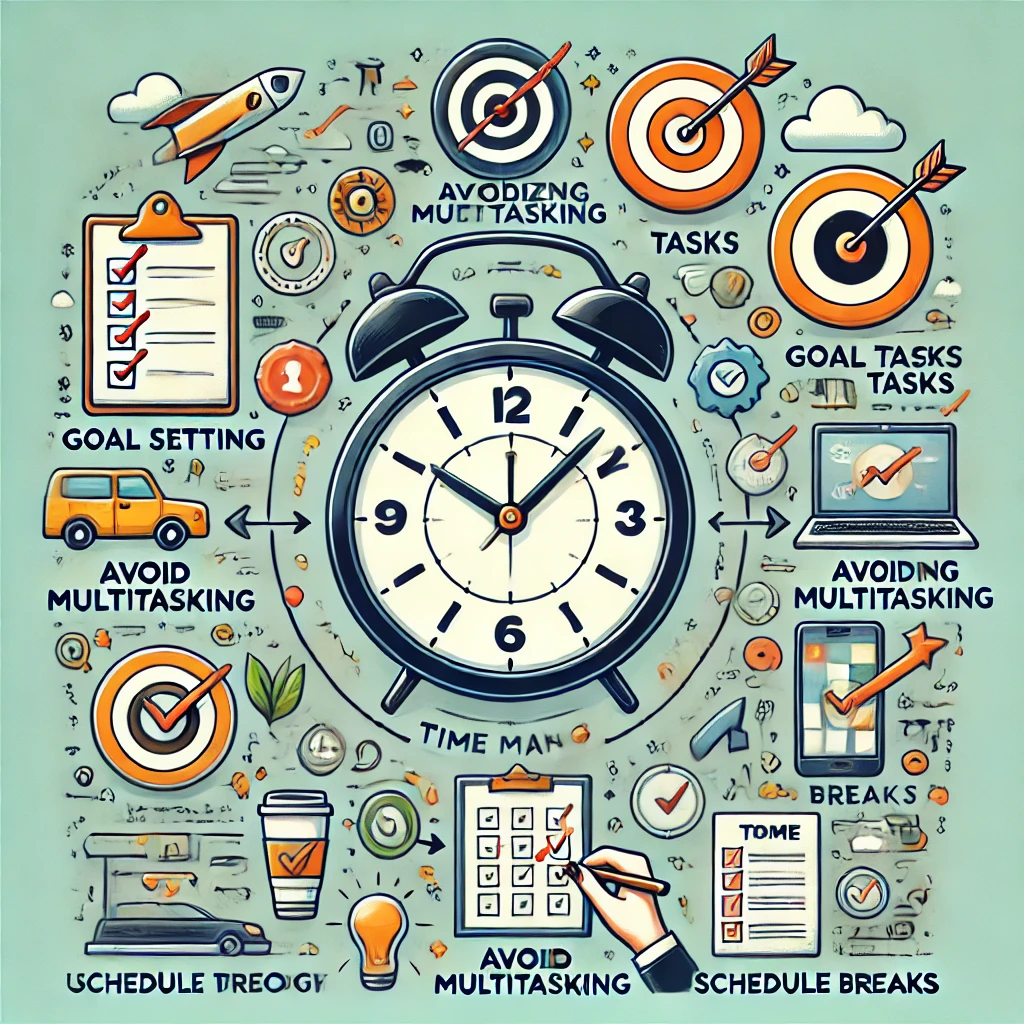Time is the most valuable resource we possess. Time does not come back once it has been spent, unlike money or material possessions. Effective time management has become mandatory with rising demands in modern life for personal and professional success. The mastery of time management brings forth less stress, higher productivity, and an enhanced quality of life, whether it is professional obligations, studies, family or personal goals that one is attempting to fulfill.
Why Managing Time Matters

With effective time management one can:
- Accomplish more in a shorter period of time.
- Make better decisions through choices made in the absence of a frantic rush at the last minute.
- Reduce stress by maintaining an organized lifestyle.
- Balance personal and professional agendas.
- Create time for self-care and leisure activities.
Practical Strategies for Time Management

1 Goal-setting:
First off, have an idea of what you want to accomplish. Use the S.M.A.R.T. method for goal-setting; ensure your goals are Specific, Measurable, Achievable, Relevant, and Time-bound. For example, rather than saying, “I want to exercise more,” state a goal such as: “I will work out for at least 30 minutes five times a week.”
2 Prioritize Which Tasks to Work On:
Other useful ways to categorize your tasks include the Eisenhower Matrix:
1) Urgent and Important: Should be done right now.
2) Important but Not Urgent: Defer them till later.
3) Urgent but Not Important: Delegate them whenever possible.
4) Neither Urgent nor Important: Eliminate or cut down on the time spent on them.
3 Make a Daily Plan:
Each day, jot down what you want to achieve. This will help you focus and organize your day with a to-do list. If you can’t devote at least a couple of hours to your work each day to ensure no interruption from your high-priority activities, put your time into blocks to use those few hours best.
4 Stop Multitasking:
Although it might look like multitasking is effective, it is a recipe for error and loss of attention. Handling one process at a time allows for improved quality and speed.
5 Limit Distractions:
Ensure that you identify potential distractions and keep them down to a minimum. Disable unnecessary notifications, politely ask family members or colleagues not to disturb you as you work, and create a work environment conducive to concentration.
6 Learn to Say No:
If you take too much on your plate, you will be burning yourself out and getting off your priority list. Politely say no if a task or activity is not in line with your goals or current workload.
7 Use Technology Wisely:
Put to work methods such as calendar apps, task management software like Trello or Asana, and time-tracking apps that work well to organize your time and track how you spend your time.
8 Time Audit :
Keep assessing your time weekly by logging your activities. Check for patterns by keeping a time log for one week. Pin down any other modes of activity that destroy your working rhythm and change your activities to fit your priorities.
9 Make Breaks Schedule:
Overworking dreadfully leads to burnout and decreased productivity. Employ methods that allow for breaks, such as the Pomodoro Technique: 25 minutes of intense work followed by 5 minutes of recess-that will keep your energy and focus up.
10 Reflection and Adjustment:
Take an end-of-week opportunity to review achievements, challenges, goal attainment, and to modify tactics to ensure something will work better the following week.
Conclusion
Awesome time management invariably takes time to adjust to; therefore, it very much boils down to routine. Setting goals and priorities while eliminating distractions and reflecting on your habits regularly makes every single day a blessing. It is not about chewing one’s nails on time but spending time well.



